As Right To Play’s Sport For Development Coordinator, Douglas Arienti Brings Sport To Deserving Communities
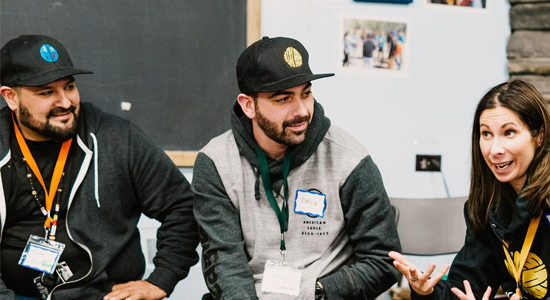
As Right To Play’s Sport For Development Coordinator, Douglas Arienti Brings Sport To Deserving Communities
As the Sport for Development Coordinator for the nonprofit organization Right To Play, Douglas Arienti has created a profile that stands out. After reading about Douglas and his role, I wanted to get a better understanding of the type of work he does by bringing sport to communities across Canada. Douglas provided insightful and interesting responses to my questions as he clearly outlined his role. He provided great knowledge on the importance of protecting, educating and empowering youth through sport. His unique story provides a refreshing view of the sporting industry, focussing on a sector that often gets overlooked. I hope you enjoy learning about Douglas’s experiences as much as I did!
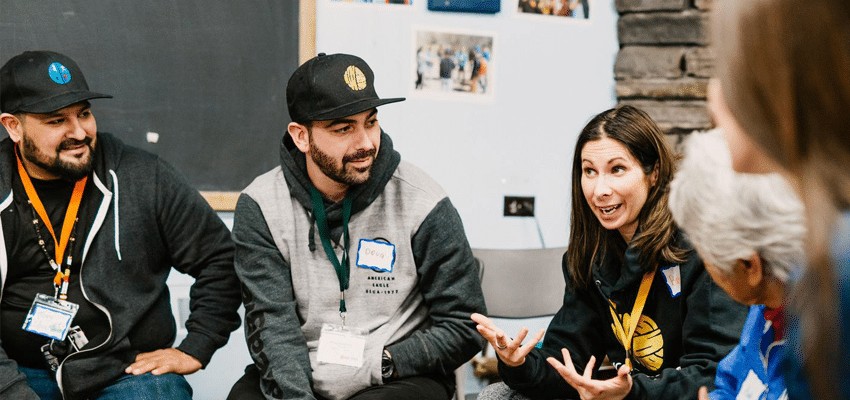
Please note: The interview with Douglas Arienti was conducted via a typed conversation. Editing changes were made to make it easier to read while maintaining the voice of the interview.
Tell us about your role as the Sport For Development Coordinator of the Right To Play.
Right To Play is an international nonprofit organization that protects, educates and empowers children to rise above adversity using the power of play. Last program year across Canada, we partnered with 90 Indigenous communities and urban organizations to train locally-hired Community Mentors. Community Mentors delivered weekly play-based programs that promote healthy living, healthy relationships, education and employability life-skills to 7,000 children and youth. Community Mentors are trained and supported by the Right To Play staff as they develop programs that are responsive to the individual needs of their community.
I am part of the Sport For Development team and, additionally to their regular programming, Indigenous organizations have the option to apply for special sports events in their communities. My job is to work closely with the local Community Mentor to plan, deliver, and evaluate sports events and projects.
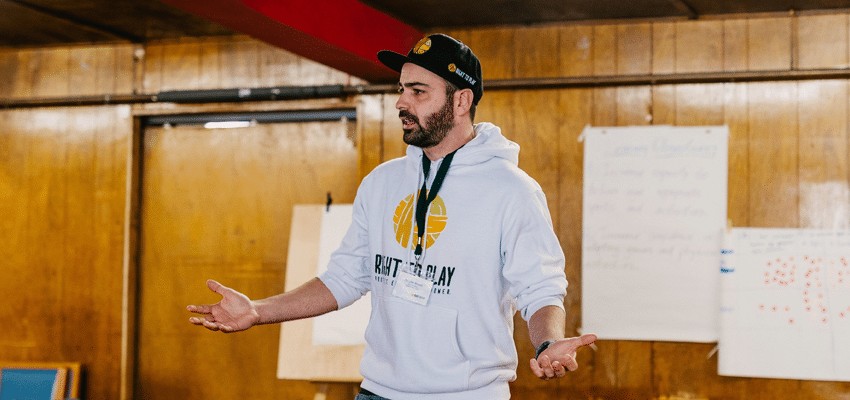
What does a typical day look like for you?
It depends on what moment of the event we are talking about. It can look chaotic at the time of the delivery when I am in a community doing sports with more than 200 youth from 9 AM to 9 PM. It can also look chill if I am on the phone with the Community Mentor planning the event, buying sports equipment, and working on the logistical project management aspect of the event. Most of my days are in the office, collecting and organizing data from community reports, working on paperwork, logistics, finances, applications, planning capacity building sessions, or drafting contracts for external facilitators.
When was the point you realized that you were meant to do this career?
Sport was always present in my life. I was born and raised in Brazil, and like most Brazilians, I grew up playing soccer. I played throughout my life, professionally for a short period and then at the varsity level during my post-secondary education. I got my teaching degree, my masters, and then I came to Canada initially to do my Ph.D. In the meantime, while applying for my permanent residency in Canada, I started coaching soccer.
Coaching changed the course of my career as it was the combination of three passions I have: sport, education, and work with youth. I decided to pursue a career in sport and went back to school for Sport Business Management.
After the completion of the program, I applied for the Sport For Development Coordinator position at Right To Play, and this is what I am doing for the last year and a half. I also coach a U9 soccer team at Dutch Connections FC.
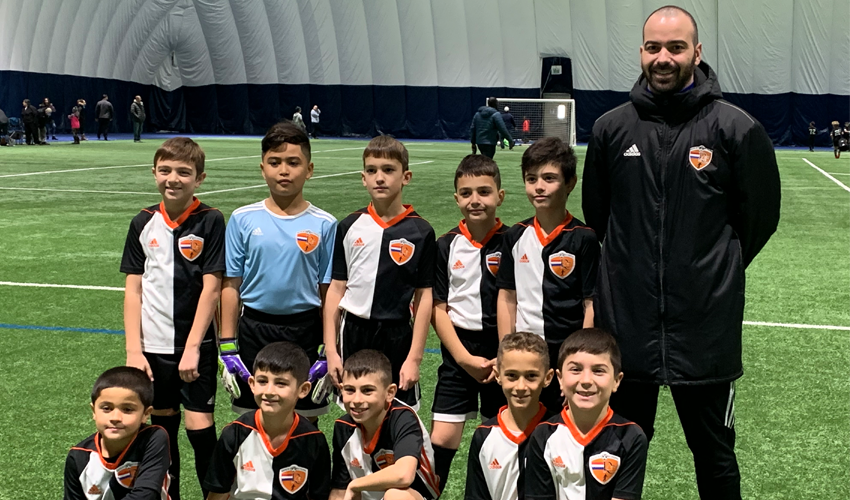
What would you say is the best part about your position? If you could explain why it's the best part of your position, that'd be excellent.
I like my job for many reasons. I love working with sports in underserved communities. Sport played a significant role in my life and I feel happy to be able to go to communities on behalf of Right To Play and support them on planning, organizing and delivering meaningful sports opportunities. If I have to choose, the best part is traveling to the communities we partner with to support the delivery of sports programs to the children and youth.
Because of my job I have the opportunity to travel to remote communities across Canada and learn more about Indigenous history and culture, another passion of mine. Our program has a national scope, and I had the opportunity to travel all over Canada and visit places that most people don’t have opportunities to go.
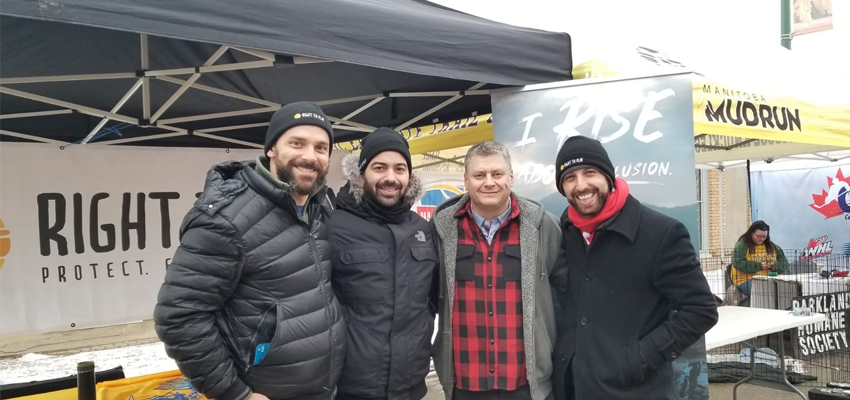
What surprised you the most about starting a career in the sport industry?
I believe it surprised me how my previous experiences helped me in this industry and how transferable our skills are. Working in the sports industry is great, and the passion for sport is the trigger for many people to start their careers in this industry. However, the daily tasks are more related to excel sheets than pucks or balls. It takes a lot of work behind the scenes to deliver sports activities and events, more than I initially thought. It also involves lots of new learning, studying, planning, negotiation, and innovation that I was not fully aware of when I decided to pursue a career in this industry.
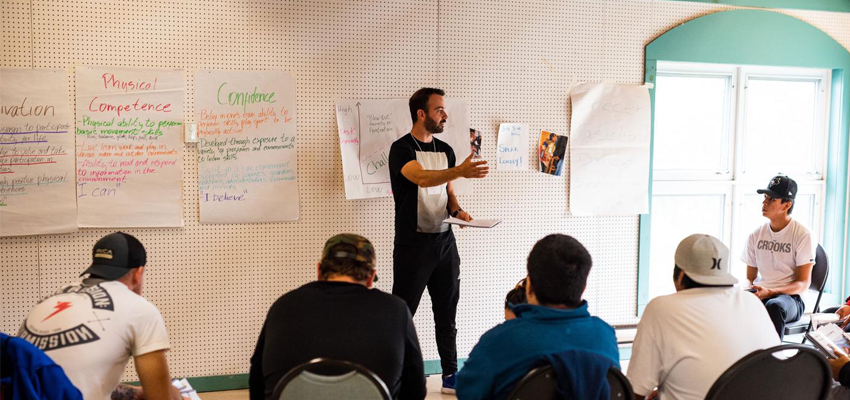
I noticed you went to school for Sport Business Management. How did the program prepare you for a career in sport?
Attending formal education in Sport Business Management helped me to understand the industry and choose the career path I wanted to take. Additionally, it also enabled me to get my first job offer in this field and supported me with the foundation I needed to learn what is required to do my job.
What are 3 essential skills someone needs to succeed in the sport industry? If you could explain each choice, that'd be great.
I am not sure if I can speak about the whole industry, but I can say what the three most essential skills I need to be successful in my job are:
1 Adaptability
Things out of our control happen, and we have to be adaptable to make decisions on the fly. Being ready and confident to decide based on the current circumstances is an important skill for who works in this sometimes chaotic industry.
2 Organization
As I said, lots of our work hours happen in front of a computer planning and organizing what we deliver. Being excellent in playing sports does not make people good professionals in the sport management field – job tasks involve procedures, budgets, logistics, and lots of teamwork.
3 Teamwork
For every sport event that we support we have multiple stakeholders involved. As we partner with communities, they have ownership over sports events or any other activities. We also engage with athletes ambassadors, coaches, donors, Indigenous leaders, community members, teachers, and the government.
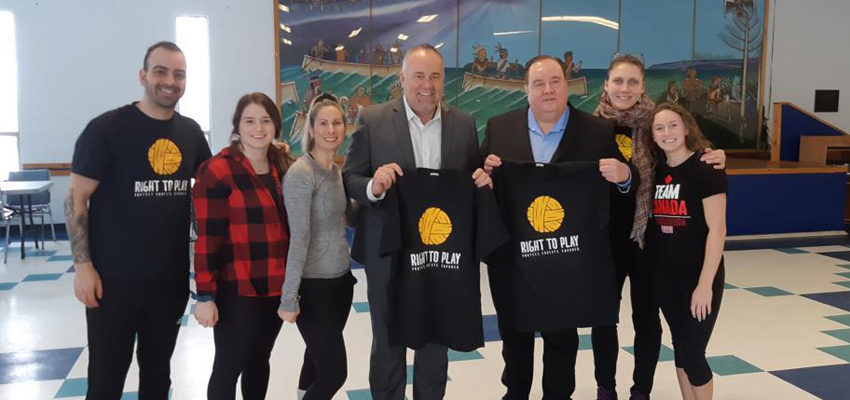
1 Escape to Victory
A classic movie to capture the intersection of sport, history and politics in the 1940s.
2 Million Dollar Baby
It was an emotional movie I watched a few years ago and came to my mind as one of my favorites sports films.
3 The Mighty Ducks
The Mighty Ducks was the first Hockey movie I ever watched. I was a kid, and at the time, I couldn’t imagine I would end up in Canada, where the hockey culture is so powerful.
Marilyn's Final Thoughts
Interview by Marilyn Napoli


